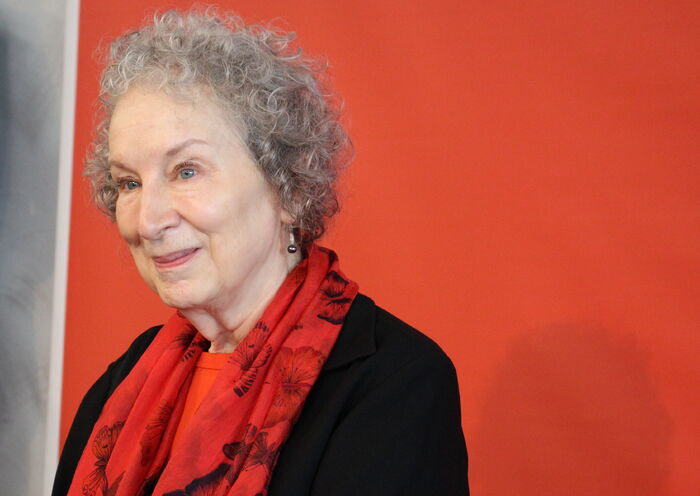W.G. Sebald runs rings around history
Joseph Krol unpacks time, loss and the east of England in his personal response to the German author

After reading select authors for a while, one starts to feel a certain aversion against reading them further. This is not through any overdone monotony of style, but rather because one can begin to fear that they are simply getting too deep into the brain. They are rarely the truly towering figures – Shakespeares, Joyces, Woolfs – these having had time to propagate down the decades, such that when eventually one does turn to them, they already feel essentially familiar. But equally they must be somehow arresting – they must inhabit a liminal part of the discourse, being neither total obscurities nor inevitable presences.
“He perfected his format, a unique communion of text and images, history and invention”
W.G. Sebald is, for me, the archetype of this: an author half the city seems to be reading, and yet whom everyone thinks is their own discovery. Across just four novels, he perfected his format, a unique communion of text and images, history and invention; and while these features remain incredibly potent, for me it was always the prose that stood out. I had been aware of Sebald as this melancholic, genre-defying author for a few months before I finally started his third novel, The Rings of Saturn, on an early evening last summer, and that first proper experience of his prose still persists strongly in my memory. It opens thus:
“In August 1992, when the dog days were drawing to an end, I set off to walk the county of Suffolk, in the hope of dispelling the emptiness that takes hold of me whenever I have completed a long stint of work.”
Here, in some forty unpretentious words, we have the centre of Sebald’s focus; the intense attentiveness to time, both in the sense of awareness of oneself in relation to history, and that more human sense of the constant awareness of time passing. Though many have been influenced by this mixture – Teju Cole, Olga Tokarczuk are, in this tradition, certainly worth reading – of course nothing else is quite like it.

I suppose I was fortunate to read it in Cambridge, for, though it was written the next city over in Norwich, The Rings of Saturn seems to me quite a Cantabrigian novel (or perhaps rather Cambridge is a Sebaldian city). Indeed, there is a quote in Nabokov somewhere that claims that in Cambridge, by virtue of its narrow streets and flat landscape, one is forced to abandon space as a medium and instead turn to time. The sparse quality of the landscape resounds across from Cambridge to Suffolk, which are after all similar in climate, in outlook, and in that historical profundity which is both deeply imposing and in an ever-vulnerable state of flux.
But my suspicion remains that Sebald’s novel worked foremost because it simply combined well with my mindset. Since my early childhood I have felt a horror toward loss – first in minor personal settings, worrying that nothing would remain of a discarded book or television set, and in later years manifesting itself as an interest in decaying manuscripts and gaps in biographies. For the most part, such thoughts were demeaned, suppressed, deemed unfit to be brought up in conversation. To read Sebald was, for the first time, to hear a voice that acknowledged these feelings and obsessions not merely as acceptable, but as necessary.
“To read Sebald was to hear a voice that acknowledged these feelings and obsessions as necessary.”
There is an issue, though, when one discovers an author with whom one so readily identifies: the fear that, since they seem to have crystallised your ideas years before you, their authorial voice will somehow subsume your own. I found that Sebald’s turns of phrase, even months after reading, kept surfacing spontaneously, especially when I was trying to write myself. (In an absurd turn of events, I found myself drunkenly imitating his style in a two-thousand-word review of my room for the JCR, as though trying to write him out of my system entirely.) I was not sure how best to resolve this other than steadfastly reading different authors, seeking to mediate a dialogue between several disparate voices, both past and current.
The great authors, in this light, are those who by some means spur one onward. We are entering a time – perhaps are already well within it – of such rapid civilisational change that if art is to maintain any relevance it must constantly be taking on new forms and styles, must always at its heart be restless. The balance between the forces of history and those of the present is difficult to set up with any accuracy. And yet, this is precisely the task that Sebald applies himself to, and the one that we too must face.
 Interviews / You don’t need to peak at Cambridge, says Robin Harding31 December 2025
Interviews / You don’t need to peak at Cambridge, says Robin Harding31 December 2025 Comment / What happened to men at Cambridge?31 December 2025
Comment / What happened to men at Cambridge?31 December 2025 News / Unions protest handling of redundancies at Epidemiology Unit30 December 2025
News / Unions protest handling of redundancies at Epidemiology Unit30 December 2025 Features / ‘Treated like we’re incompetent’: ents officers on college micromanagement30 December 2025
Features / ‘Treated like we’re incompetent’: ents officers on college micromanagement30 December 2025 News / Varsity’s biggest stories of 202531 December 2025
News / Varsity’s biggest stories of 202531 December 2025










